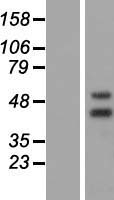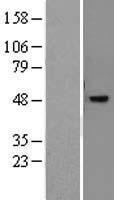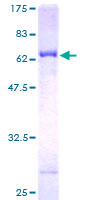order histories, retained contact details for faster checkout, review submissions, and special promotions.
Forgot password?
order histories, retained contact details for faster checkout, review submissions, and special promotions.
Locations
Orders Processing,
Shipping & Receiving,
Warehouse
2 Shaker Rd Suites
B001/B101
Shirley, MA 01464
Production Lab
Floor 6, Suite 620
20700 44th Avenue W
Lynnwood, WA 98036
Telephone Numbers
Tel: +1 (206) 374-1102
Fax: +1 (206) 577-4565
Contact Us
Additional Contact Details
order histories, retained contact details for faster checkout, review submissions, and special promotions.
Forgot password?
order histories, retained contact details for faster checkout, review submissions, and special promotions.
NR2E3 / PNR
nuclear receptor subfamily 2, group E, member 3
NR2E3 / PNR is part of a large family of nuclear receptor transcription factors involved in signaling pathways. Nuclear receptors have been shown to regulate pathways involved in embryonic development, as well as in maintenance of proper cell function in adults. Members of this family are characterized by discrete domains that function in DNA and ligand binding. This gene encodes a retinal nuclear receptor that is a ligand-dependent transcription factor. Defects in this gene are a cause of enhanced S cone syndrome. Alternatively spliced transcript variants encoding different isoforms have been identified.
| Gene Name: | nuclear receptor subfamily 2, group E, member 3 |
| Family/Subfamily: | NHR , NR2 Hepatocyte NF4-like |
| Synonyms: | NR2E3, ESCS, PNR, RNR, Rd7, RP37 |
| Target Sequences: | NM_014249 NP_055064.1 Q9Y5X4 |









If you do not find the reagent or information you require, please contact Customer.Support@LSBio.com to inquire about additional products in development.









